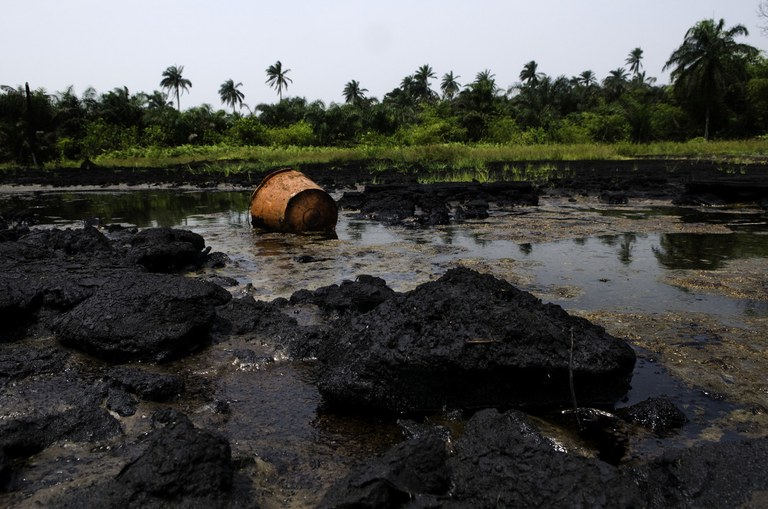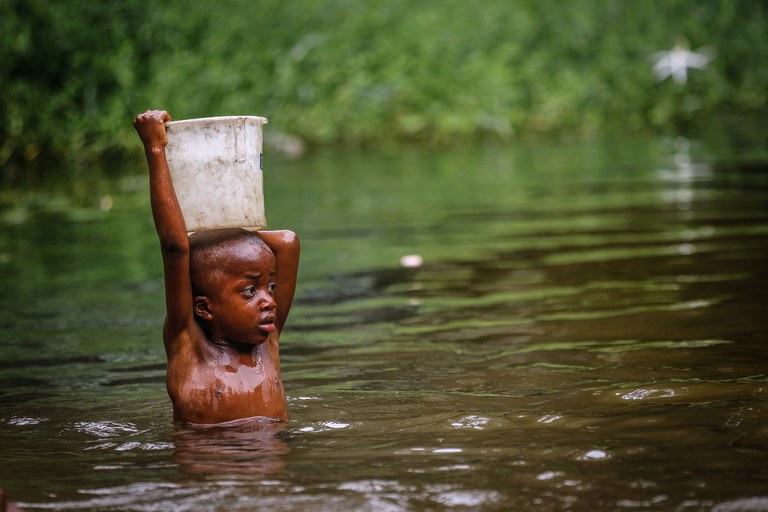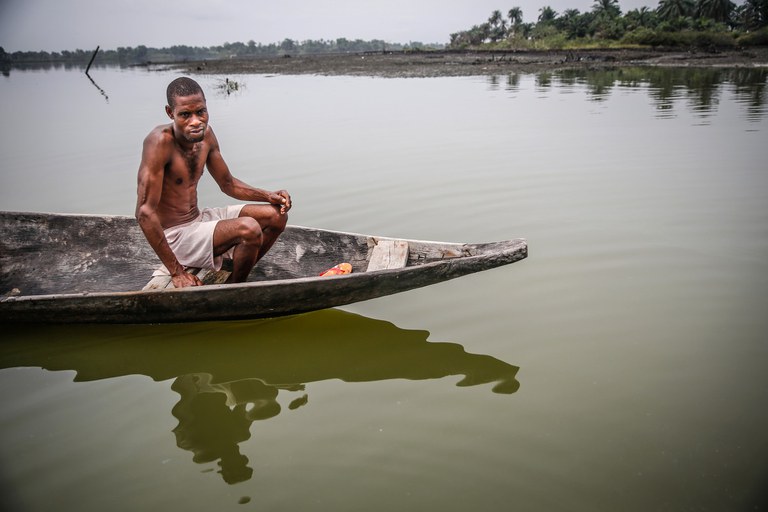Nigerian farmers and their communities are to receive 15 million euros in compensation from Shell, ending a lawsuit that lasted 15 years. But what was the case all about? We take a moment to explain.
In 2008 four farmers, together with Milieudefensie, initiated legal proceedings against the headquarters of Shell in The Hague. Their motivation was oil pollution in the villages Oruma, Goi and Ikot Ada Udo in de Niger Delta in Nigeria. The oil spills occurred between 2004 and 2007.
In January 2021 – 15 years later – we won the case. The court ordered Shell to pay compensation to the farmers and to install a leak warning system. Following negotiations, the amount of compensation was announced in December 2022.
This was a truly ground-breaking case: for the first time in history a corporate headquarters was held responsible for the actions of their subsidiary in another country. Shell resisted the claim for many years, arguing from their headquarters in the Netherlands that the case should be heard in a Nigerian court. The Dutch Court did not agree.
In brief, we asked three things of the court:
Every year 240 million litres of oil leaks into the Niger Delta, seriously contaminating rivers and farmland. And with disastrous consequences: people become sick through the food they eat, the water they drink and the air they breathe.
Women here suffer twice as many miscarriages as in the rest of Nigeria and infant mortality in the Niger Delta is extremely high. People go hungry because there are no fish left in the rivers and the yield from the fields is so poor. Unemployment is high in the region and extreme violence commonplace. All a consequence of oil pollution by companies such as Shell.

We started this lawsuit for two reasons:
So what about Shell’s responsibility? Read on:
All the data we have collected through the years show that Shell failed to maintain its pipelines, or to maintain them sufficiently. Outdated pipelines were left to rust in the ground for years, leading to spills.
This was the main question in the lawsuit: is Shell responsible for the damage caused by the oil spilling from its pipelines?
According to Shell’s own figures, sabotage is an everyday occurrence in Nigeria, so you could have expected Shell to take measures to prevent sabotage. However, the obsolete technology used by Shell meant that spills were not detected quickly enough and could not be stopped in time. And Shell barely used security guards to guard the pipelines. Unused oil wells were not shut down and pipelines were not laid underground.

Any company confronted with spills would do its best to solve the problem as quickly as possible. Which makes it so strange that Shell in Nigeria hardly intervened in spills at all. Shell’s response was often slow and inadequate. The systems used by Shell were very outdated, meaning that Shell was unable to shut down pipelines remotely. Shell also had insufficient trained staff to put into action right away in the event of a spill.
Shell has an obligation to clean up spills. But it often took months before any attempt was made to clean up a spill. And in most cases the clean-up operation was not thorough enough. This left residents unable to grow food on their land. A recent report also shows that the companies engaged by Shell had barely any experience in cleaning up oil spills.
Shell in the Netherlands has stated several times in court that it is not responsible for the actions of its subsidiary in Nigeria. The court did not agree. A parent company is indeed liable for the actions of the subsidiary.
Shell in the Netherlands sets out the policy and directs the subsidiaries. Documentation reveals that Shell was involved in the business operations in Nigeria. The parent company provided guidance where necessary. But the oil pollution and the fate of the local communities were clearly of low priority.

Of course, it is fantastic that we won this lawsuit. But 15 years is far too long to wait for justice. And especially in a region where most people don’t even make it to the age of 45. The verdict came too late for the four original plaintiffs. All four of them passed away during the process and their families took over the case.
This case only covered three of many thousands of other oil spills in Nigeria alone, and sadly the case changes nothing in these other spills.
People who find themselves in similar circumstances can take hope from this verdict. Because what counts for Shell counts for other companies and other places in the world. Now everyone has been able to see for themselves that even a giant such as Shell can be beaten.
Friends of the Earth Netherlands has opened a service line for official beneficiaries of the Shell Nigeria settlement. The service line can be approached for questions by people who are to receive a payment. Click here for more information.
Our website uses cookies to ensure the use and functionality of this website. Read more about our cookie policy